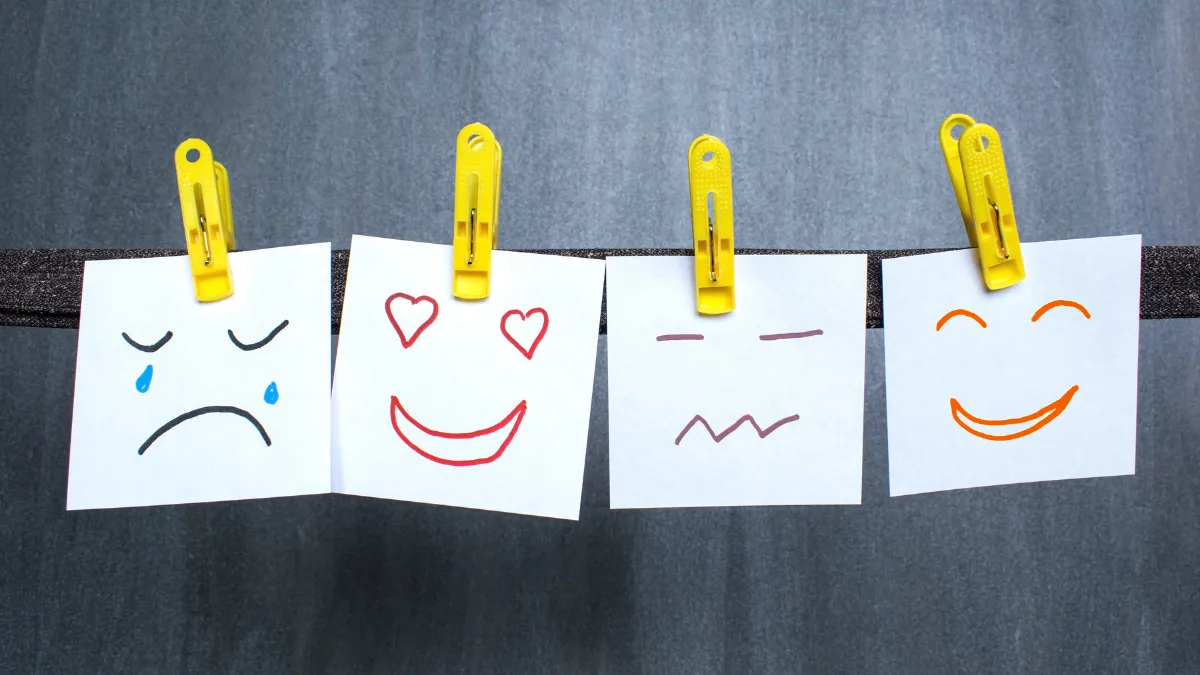BLOG
The Art of Sovereign Living
After Codependency

How are You Feeling Today? Do You Even Know?
You can trust your feelings. They will guide you towards what is for you and away from what is not.
When you are a survivor of childhood abuse, you are often cut off from your feelings. The pain from your core wounds: I am not worthy, I am not lovable, I am not deserving, and I am not enough is just too unbearable. So, you disassociate and become numb. If you start to feel something, then you do what it takes to suppress the pain whether it is shopping, overeating, drinking too much, having sex, spending hours on social media, numbing out in front of the television, etc. It doesn’t matter what it is, it is just your way of numbing the pain. Then these behaviors pile on more shame to the pain you are already trying to suppress, so then you do even more of these things. It becomes a vicious cycle. Remember, if you are acting out in this way, you are just trying to protect yourself from feeling the pain you experienced in childhood. It is just the brain’s way of keeping you safe.
Another effect of an abusive childhood is having your feelings invalidated. For example, you start crying, then your mother says, “Stop crying or I will give you something to cry about”. How many of you heard this growing up? I know when my mother said this to me, I thought to myself well obviously if I am crying, I already have something to cry about. But to avoid punishment, I stuffed down those feelings that were causing me to cry and put a smile on my face to appease my mother. Just this one example taught me as a child that my feelings were not important, not valid, and not correct.
When you suppress your feelings, you are more prone to having digestive issues, autoimmune disorders, and physical pain in the body. Feelings need to be expressed or they get stuck in the body. Years ago, at the beginning of my healing journey, I was doing the exercises in the You Can Heal Your Life Workbook by Louise Hay. It was a tough workbook, so I was excited when I got to the Anger lesson. Since I didn’t think I had any anger, I figured I would breeze through this section. Boy was I wrong! This ended up being the toughest lesson in the workbook. My body was filled with so much unexpressed anger for my mother for what she put me through when I was a child and a few others for not protecting me during this time. When I checked in with my body, I felt a tightness in my lower left abdomen. It took days to get through this chapter and start feeling the anger that was deeply held in my body and processing it. When this was done, the tightness alleviated, and I felt freer.
Anger is not encouraged to be expressed, especially in women. We are often taught as little girls that it is not ladylike to express anger, and it is even more challenging when we come from abusive childhoods. Because it doesn’t feel like we have a right to be angry about how we are being treated, and we don’t feel safe expressing it. But whether it is anger, sadness, happiness, frustration, or any other emotion, it is important to feel the emotion and express it healthily because your feelings are your guide. Have you ever felt uneasy about a situation, but you proceeded anyway? Have you ever felt upset with how you were treated by someone, but you suppressed it? Have you ever felt “off” about a person, but you ignored it? Think back to different situations and experiences you have had when you ignored your feelings or didn’t express them. Were there consequences to doing so?
You can trust your feelings. They will guide you towards what is for you and away from what is not. Your feelings do not live in your thinking mind, they are felt in your body. When you are around someone, do you feel tight, restricted, or good around them? When you are doing something, does it feel good to do it or are you annoyed? When you set a goal for yourself, does it feel exciting or are you filled with dread? These are the types of questions that you should ask yourself throughout the day as you go about your daily life. There is no need to pathologize how you are feeling, just check-in. If you are not feeling good about something, what could you do to feel better? If you are feeling good about something, is there a way to add more of this in your life?
Just start noticing your feelings throughout the day. Do a quick check-in with yourself. Honoring and validating your feelings is a form of self-care. If you are unhappy doing something, you don’t have to convince yourself that you should keep doing it. Just notice that you are unhappy and think about ways you can transform the experience. If someone asks you to do something and it doesn’t feel right to you, don’t do it. Instead of thinking about these things, feel into them instead.
Let your feelings be your guide, they will not steer you wrong.
For more information on Jillian’s coaching programs, please visit www.JillianDeamer.com.
FREE DOWNLOAD
Free E-book:
The Sovereign Woman’s Roadmap: Reclaiming
Your Power & Trusting Yourself Again
Ready to break free from codependency and reclaim your sovereignty?
The Sovereign Woman’s Roadmap is your step-by-step guide to healing from self-abandonment, rebuilding self-trust, and stepping into a life of empowerment and purpose.
This free e-book provides practical tools, trauma-informed strategies, and self-reclamation exercises to help you break old patterns, set strong boundaries, and rise into the empowered, sovereign woman you were meant to be.
Download your free copy today and take your first step toward freedom, self-worth, and emotional sovereignty!
© Copyright 2025 JD Integrative Coaching, LLC - Privacy Policy - Terms & Conditions - Disclaimer

